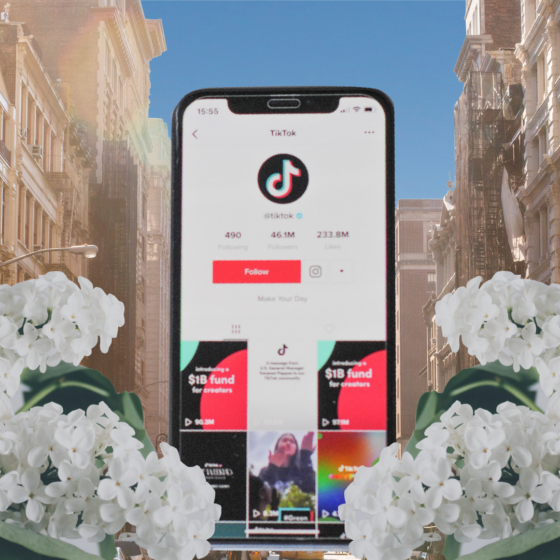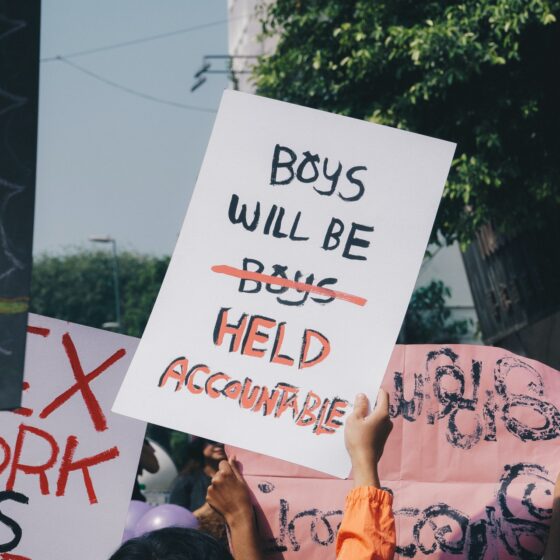Being a woman is hard. Dealing with all the crap life throws at you? Even harder. And that’s before we bring our ambitions into it! Enter Restless Network’s newest column, ‘Owning It’ with founder and CEO Olivia DeRamus. Olivia is a survivor and entrepreneur who knows that this shit is hard, and has some, shall we say, *experiences* that have incidentally made her an expert on dealing with the mess that can so often be our lives. You can ask Olivia for help on all things #metoo, work life, mental health, and entrepreneurship.
Q: Hi Olivia! I’m in college right now, and a couple months back, I was assaulted. I want to talk about what happened to me, but I’m worried that if I do, that it might hurt my chances of getting a job after I graduate. Do you think this is true? How do you navigate being professional while also speaking your truth? – Hesitant
Dear Hesitant,
First of all, I’m so sorry that you had to go through that. Coming forward with your story is a brave choice that everyone here in the Restless community applauds. Speaking out about what happened to you, in my opinion, is not going to hurt your chances of getting a job. Future employers will be looking at your capacity to do the job, your experience, and transcript. They’re going to be asking themselves, “What skills does this person bring to the table?” “Can I rely on them to do the job?”. They’re not going to be asking anything about your personal life. That’s inappropriate in any situation. If a potential employer does ask about that, I’d suggest running for the hills, fast.
As an employer myself, sometimes I take a look at the applicant’s social media to get a better feel of who they are. When I’m looking at someone’s Instagram, I’m thinking about their personal brand and what they’re putting out into the world. Are they a positive person? Do they have values that align with Restless? If I came across someone who is putting themselves out there to call out an injustice, that would impress me! Speaking up for what’s right speaks to your character. Surviving something like assault is so difficult.To speak out about it can unfortunately cause even more stress and trauma. It takes perseverance to do something like that. And employers need people like that. It shows that you’re willing to commit to solving a problem, and are able to have hard conversations.
When thinking about whether to speak out, I think the more important question is whether it’s the right choice for you personally.
How will it make you feel? Do you have support networks in place? What do you want to achieve? Speaking out can quickly turn overwhelming, so it’s helpful to have a clear goal in mind to focus on. Do you have specific boundaries or a set of questions you are and aren’t comfortable answering? Are you thinking of speaking out because it’s what you truly want, or are people pressuring you to do so?
In terms of being open about my own story, to be honest at first I found it extremely awkward. Going to networking events and explaining to a total stranger the story behind Restless “I founded it after my assaulter sued me!” is kind of a big bomb to drop, you know what I’m saying?
But unless you’re starting a project or business around this topic like I did, I don’t think that it needs to come up in professional settings unless you want it to. You wouldn’t talk about the details of your last break up in that setting either, right?
An example of when talking about this might be appropriate is if someone asks you what advocacy work you’ve done or what’s been a difficult experience that you’ve had to overcome. Use your best judgement on this one, I’m sure you’ll know when feels right to bring it up.
I don’t really want the fact that I’ve been assaulted as my headline. When I think of what I want people to think of me, I think entrepreneur and successful business woman. Being a survivor is only one small part of who I am. Have you asked yourself these questions yet? Do some self reflecting. Talking about what happened to you should not define your entire being, and it won’t. But you’re your own best advocate, so it’s up to you to set the narrative of who you are. Trust me, you don’t want to let anyone else do this for you.
Speaking out about what happened to you will not define the rest of your life. It will be hard, and yes, there are some dangers when doing this, but your life is going to be so full of different experiences. If you do speak out, you’re doing a brave thing. But if you decide that you don’t want to, that’s brave too, because whatever you choose, you’ll be making the right choice for you. That’s powerful in itself. As for employers, you can worry about that when the time comes. (But I really wouldn’t worry about it period.) Right now, my greatest wish for you is that you live in the moment. Do what feels right for you – whatever that may be, and try to embrace your college experience instead of focusing on what hasn’t happened yet.
Want to ask Olivia for advice? Email your question to advice@restlessmagazine.net









